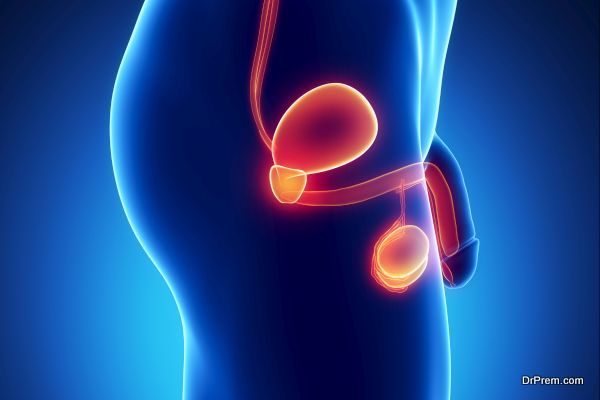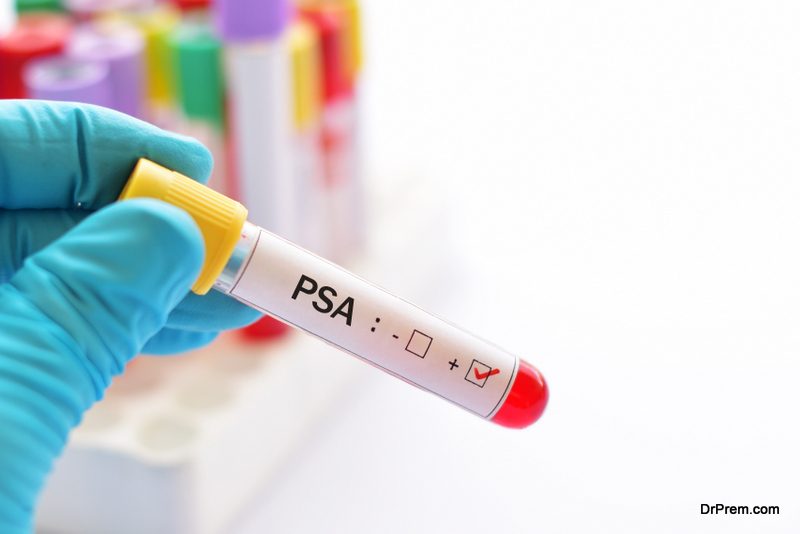As unpleasant as it may seem, a prostate exam is an important and necessary screening for men. Depending on your age and family history of prostate cancer, the exam is usually done after the age of 50 and in the comfort and privacy of your doctor’s office. Even without symptoms, getting a prostate exam is an important step in preventative medicine. Learn more here about exactly what a prostate exam is, what to expect, and why it’s so important.
What is a Prostate Exam?

Because prostate cancer is the second leading cause of cancer death in men, getting an exam is the first step in early detection and prevention. Even for men who aren’t having any symptoms of illness or cancer, a prostate exam after the age of 50 is strongly recommended. During the exam, your doctor can detect any abnormalities or if the prostate is enlarged. Prostate exams are generally performed by a nurse or doctor at a urologists office. A urologist is trained in treating issues affecting a man’s urinary tract and reproductive organs. Your urologist can diagnose and treat things like kidney stones, pelvic floor problems, sexual dysfunction, and even low testosterone. You can also learn more about that here.
What to Expect
Knowledge is power when it comes to medical procedures. So before you head to the doctor for your annual prostate exam, it helps to gather information about what to expect. There are 2 techniques the doctor can use to check your prostate – digital rectal exam (DRE) and prostate-specific antigen test (PSA). Ideally, both of these tests are performed as part of the screening process, if the patient gives consent. It’s also important to note that neither of these tests will confirm that you have prostate cancer but instead, will alert doctors to warning signs or other indications that further tests are required. This usually involves a prostate biopsy.
Understanding the meaning of digital rectal exam
 The DRE, or digital rectal exam, is often unpleasant but only take a few minutes to complete. The doctor or nurse will inserts a gloved finger using lubricant into the rectum so they can locate and manually feel the prostate. This technique allows doctors to feel any abnormalities or enlargements. The male prostate is a walnut-sized gland located below the bladder and surrounds the urethra, which carries both urine and semen out of the body. Every patient with feel different during a DRE. For some, it may cause slight discomfort or even pain, while others will feel mild pressure and may even feel the urge to urinate. If you do, this could be a sign of an enlarged or inflamed prostate. Following the exam, some patients may experience bloody stool or bleeding from the rectum. This is especially common in patients with hemorrhoids or fissures. If you have either, you should inform the doctor prior to the exam.
The DRE, or digital rectal exam, is often unpleasant but only take a few minutes to complete. The doctor or nurse will inserts a gloved finger using lubricant into the rectum so they can locate and manually feel the prostate. This technique allows doctors to feel any abnormalities or enlargements. The male prostate is a walnut-sized gland located below the bladder and surrounds the urethra, which carries both urine and semen out of the body. Every patient with feel different during a DRE. For some, it may cause slight discomfort or even pain, while others will feel mild pressure and may even feel the urge to urinate. If you do, this could be a sign of an enlarged or inflamed prostate. Following the exam, some patients may experience bloody stool or bleeding from the rectum. This is especially common in patients with hemorrhoids or fissures. If you have either, you should inform the doctor prior to the exam.
Understanding the meaning of prostate-specific antigen test
The PSA, or prostate-specific antigen test, is often done in conjunction with the DRE and is a simple blood test. This test is used to determine how much PSA is produced by the prostate gland. Some protein produced by the prostate leaks into the person’s blood and can be detected and measured by doctors. In order for the doctor to successfully perform a PSA, the man needs to prepare several days before the test. You cannot ejaculate for 48 hours before the PSA exam and must be free of any urinary tract infections or complications. It’s also recommended you avoid vigorous exercise 48 hours prior to the exam. It’s also important to note that some external factors, other than the ones mentioned above, can cause a rise in PSA levels and result in a false positive on the blood test. Things like increased activity, stress, or recent travel can inadvertently cause a spike in your PSA. The results of your PSA test may take upwards of 14 days to come back. The doctor will determine if your PSA levels are normal based on your age, ethnicity, family history, and weight. An unexplained high PSA reading will result in additional tests.
Why Are Prostate Exams Important?
 Early detection of cancer is the main reason why a prostate exam is necessary. This is especially true if you have a family history of prostate cancer or complications. Although men can have their prostate removed and still lead completely healthy lives, certain aspects of their life will be affected. The prostate gland produces fluid that combines with sperm cells to produce semen. The prostate muscles are responsible for pushing the semen into the urethra where it is then expelled during ejaculation. If prostate cancer is detected, the most common remedy is to remove the prostate. That’s because, while functional, men can live without their prostate gland. However, without a prostate gland, the man will no longer experience ejaculation. This doesn’t mean they won’t climax or have an orgasm during sex, but they won’t expel semen and the sensation will be different from what they’re used to. For some men, it’s difficult to achieve an erection following prostate removal but it’s not impossible. Sex can still be pleasurable for both partners even after prostate surgery. Some men without a prostate also experience complications while urinating or leaking urine.
Early detection of cancer is the main reason why a prostate exam is necessary. This is especially true if you have a family history of prostate cancer or complications. Although men can have their prostate removed and still lead completely healthy lives, certain aspects of their life will be affected. The prostate gland produces fluid that combines with sperm cells to produce semen. The prostate muscles are responsible for pushing the semen into the urethra where it is then expelled during ejaculation. If prostate cancer is detected, the most common remedy is to remove the prostate. That’s because, while functional, men can live without their prostate gland. However, without a prostate gland, the man will no longer experience ejaculation. This doesn’t mean they won’t climax or have an orgasm during sex, but they won’t expel semen and the sensation will be different from what they’re used to. For some men, it’s difficult to achieve an erection following prostate removal but it’s not impossible. Sex can still be pleasurable for both partners even after prostate surgery. Some men without a prostate also experience complications while urinating or leaking urine.
Warning Signs of Prostate Cancer
While prostate screenings are recommended after the age of 50, if you exhibit early warning signs or complications, you should see your doctor or urologist immediately for evaluation. Early detection is key when it comes to preventing and treating prostate cancer. A few warning signs include:
- Difficulty starting or stopping the flow of urine
- Erectile dysfunction (ED)
- Inability to urinate standing up
- Pain or discomfort in the bones, pelvic area, or hips
- Blood in urine or semen
Any or all of these symptoms could be a sign that you have an enlarged or abnormal prostate and should contact your doctor right away.
Early detection is key when it comes to prostate cancer. The sooner symptoms or complications are recognized, the sooner they can be addressed and treated. While it may be unpleasant, a prostate exam only takes a few minutes and could potentially save your life.
Article Submitted By Community Writer




